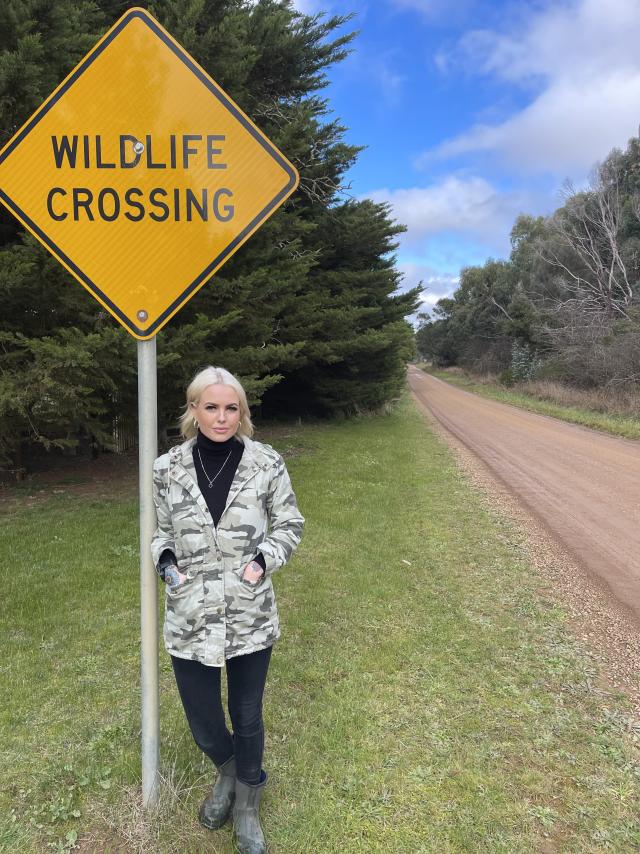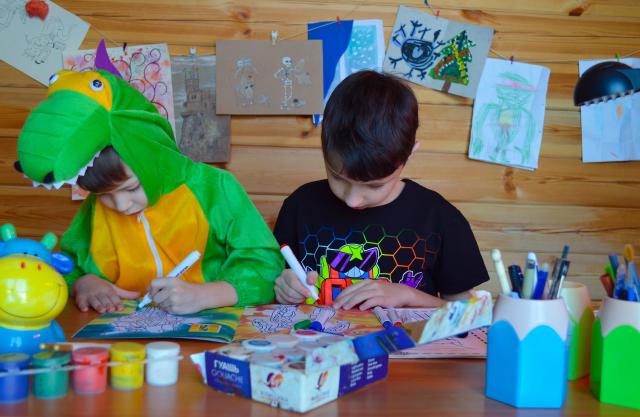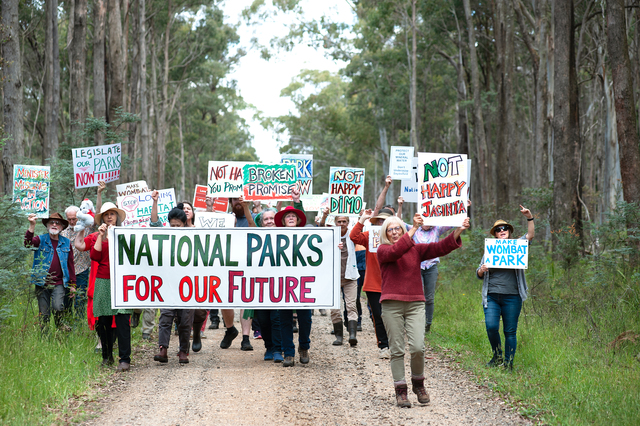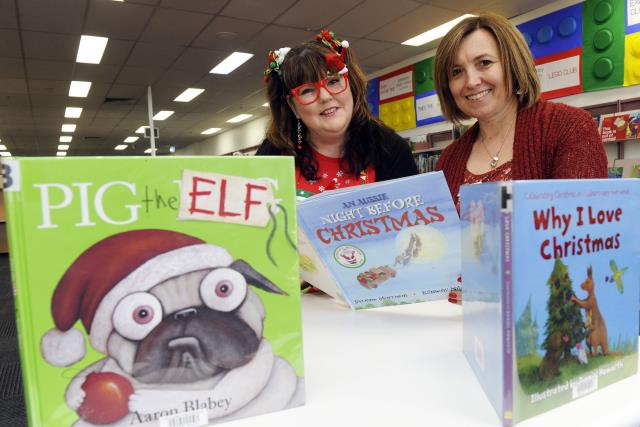An Animal Justice Party candidate for the November state election is calling for a Macedon Ranges council-run road in Romsey to have its speed limit halved to limit native wildlife deaths.
Northern Victoria candidate and Kyneton resident Georgie Purcell wants to see the speed limit on Moffats Lane reduced from 100km/h down to 50km/h, after hearing concerns from residents about animal fatalities along the road.
“The installation of wildlife crossing signs is simply not enough to protect wildlife on Moffats Lane,” Ms Purcell said.
“Real and meaningful protection must be put in place – starting with a speed limit reduction, but wildlife underpasses and even virtual fencing should also be considered.
“Slowing down on our roads only costs us a few minutes of our day. If we don’t do it – it can cost native animals their life.
“A number of the properties on Moffats Lane are Land for Wildlife areas. A speed limit of 100km/hr is not conducive with keeping native animals safe.”
Wildlife rescuer Manfred Zabinskas from Five Freedoms Animal Rescue in East Trentham said he had seen a “massive” uptick in the number of animals killed and injured on Macedon Ranges roads.
While Mr Zabinskas wasn’t familiar with Moffats Lane in particular, he said there “no doubt” a speed reduction would reduce “carnage”.
“We’re often campaigning to get speeds reduced in hot spot areas,” he said.
Macedon Ranges assets and operations director Shane Walden said council was aware of community concern regarding the area.
“Council has undertaken traffic monitoring on Moffats Lane,” Mr Walden said.
“This does not support a speed reduction at this time and we continue to liaise with residents in the area.”
In Ms Purcell’s statement, she said one farm on the road, Moffitts Farm, had rewilded its property since the 1980s and attracted many animals, “but as soon as they cross the road, they are in danger”.
“It is pleasing to see farmers willing to share their land with both livestock and wildlife. Their efforts to conserve our natural environment must be recognised,” Ms Purcell said.
“This road is yet another case study for the need to see wildlife become a key consideration when designing roads and setting speed limits, especially in rural areas.”







